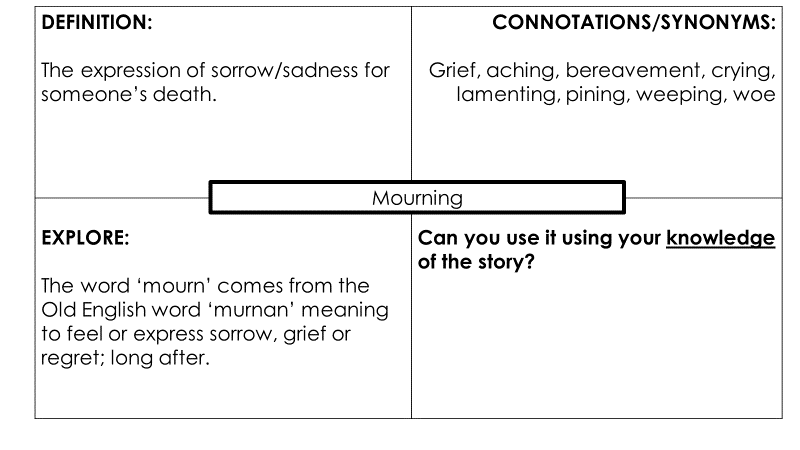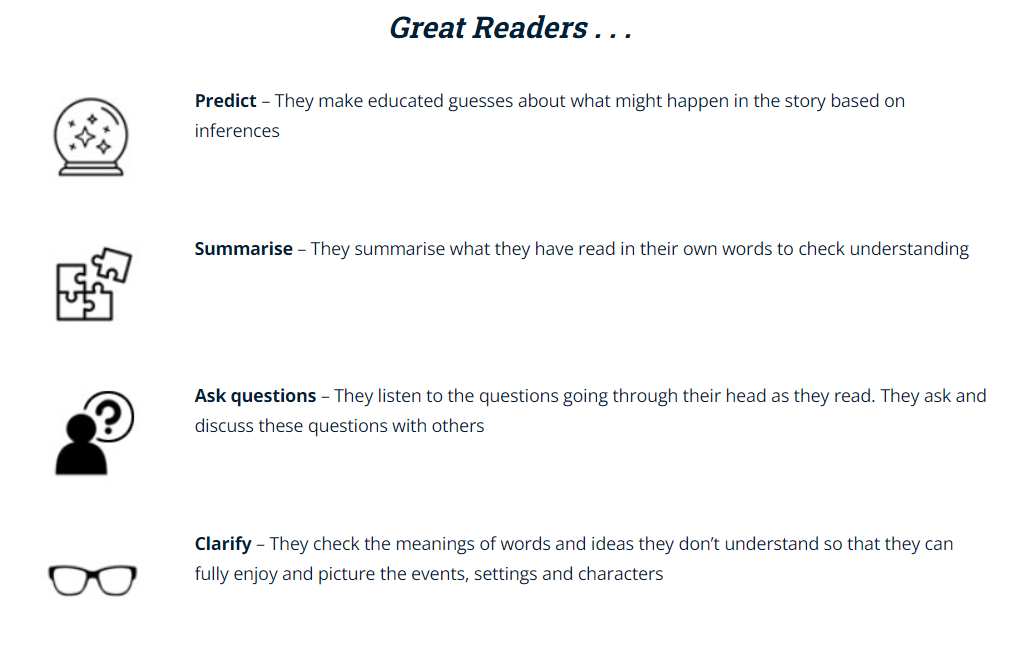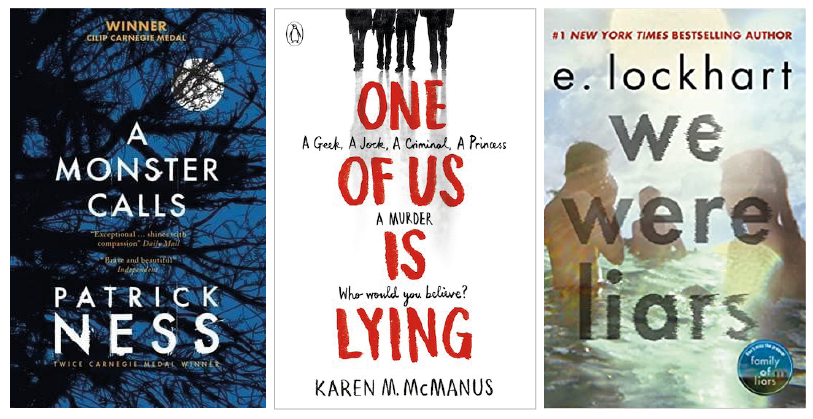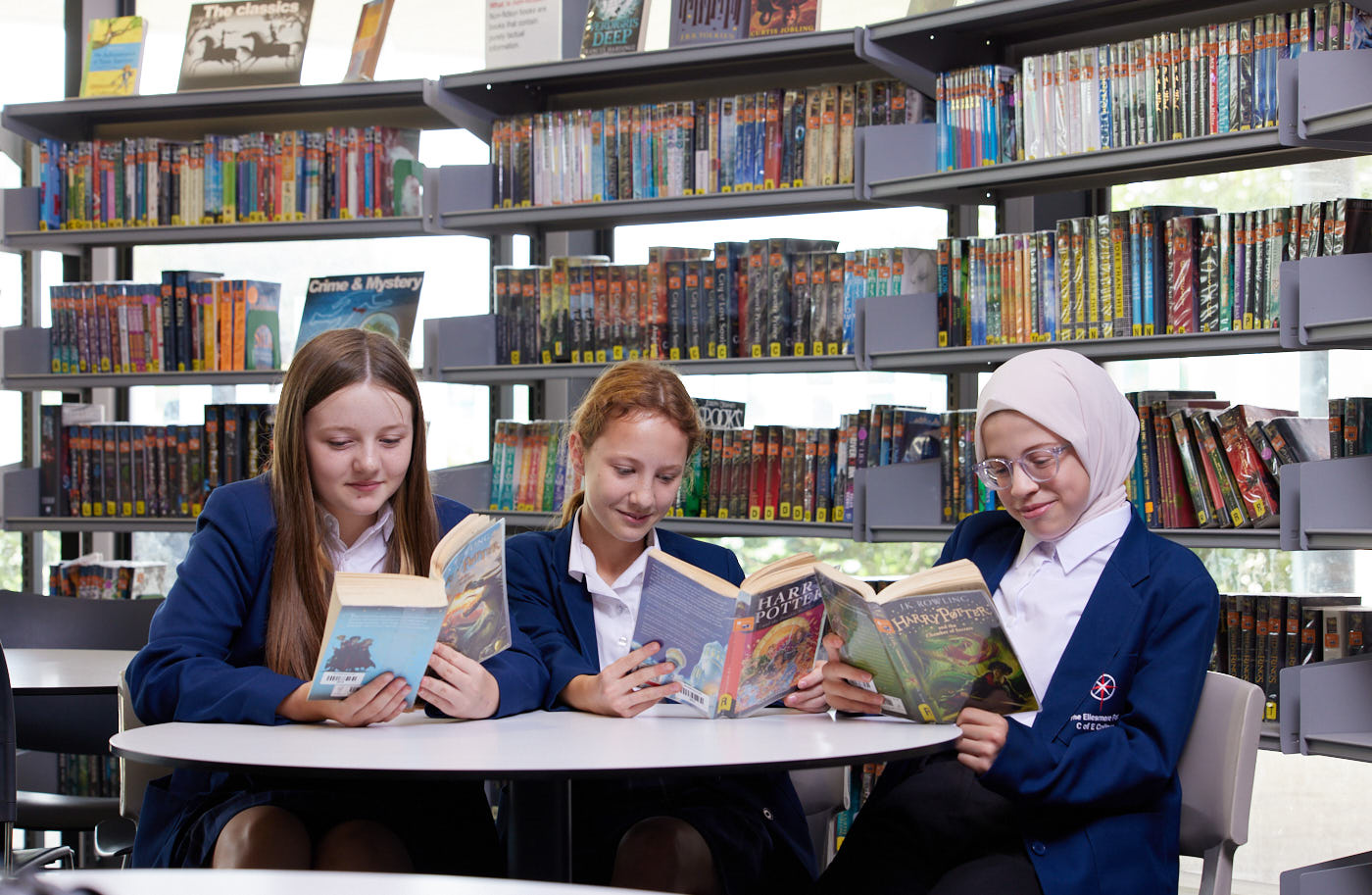Literacy at EPC
‚ÄúThe more that you read, the more things you will know. The more that you learn, the more places you’ll go.‚ÄĚ ‚Äď Dr Suess
We believe that the development of literacy is fundamental to our College because:  
- children need to be competent readers, writers, speakers and listeners in order to reach in order to lead a choice-filled life
- high standards of Literacy improve intellectual capital in ALL subjects
- pupils’ ability to read critically is increasingly important in our ever-changing complex world
- those who read for just 30 minutes per week are more likely to report greater life-satisfaction and self-esteem.
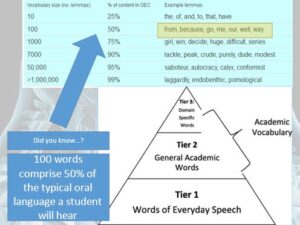
- of the importance of children having a word-rich vocabulary¬†For full comprehension of a text, a student must understand 90-95% of the vocabulary, and so this is the first step to accessing high quality informational texts (including exam papers). On average teenagers hear just 100 word families (e.g. run, running, ran, runs) approximately 50% of the time in spoken language. It is important therefore that young people hear, understand and are able to use a wide range of general academic words ‚Äď As such, our teaching prioritises the teaching of key vocabulary as an essential part of a knowledge-rich curriculum.
We are all Teachers of Literacy
All teachers are teachers of Literacy and, although the English department will teach the key skills of Literacy and Oracy, every teacher should develop and improve standards of Literacy through providing good models and opportunities for pupils to practise reading, writing, speaking and listening.
At EPC, there are a set of Literacy Non-Negotiables in every lesson. These are:
- Capital letters must be used at the start of sentences and for the first letter of proper nouns (people, places, days of the week, months)
- Full stops must be used at the end of a sentence
- Question marks must be used at the end of a question
- Apostrophes should only be used for possession (e.g. Michael‚Äôs) or omission (when a letter is missing e.g. do not ‚ģě don‚Äôt, we will ‚ģě we‚Äôll)
- Days of the week and months must be spelled correctly
- Key words must be spelled correctly
Children are reminded of these expectations every lesson and teachers will identify any of these errors when marking books.
We have a common approach to Writing
Our common approaches to non-fiction writing support children to embed the key features of non-fiction texts, something which is vital for effective communication in the wider world.
When introducing new forms of writing, teachers will:
- use common approaches to remind pupils of the features of non-fiction texts;
- use common definitions of command words;
- model good written examples;
- explore word/sentence/text level/features of a text;
- scaffold early attempts (e.g. sentence starters, writing frames);
- provide independent writing practice including opportunities for extended writing;
- review and draw out key learning.
All staff ensure that the strategies above are implemented and consolidated, where appropriate, throughout their lessons and in their marking.
Why Reading Matters?
Why reading matters…
- Reading is a fundamental skill to unlock individual potential.
- Reading is at the heart of every subject and is proven to improve cultural capital.
- 14-year-olds who read often and independently know 26% more words than those who never read.
- Each subject requires students to read text which have specific features that need to be recognised and identified to ensure full comprehension.
For guidance on how best to support your child with reading:
- The Department for Education and Skills have published excellent guidance for parents around how best to support their children with reading at secondary school. Please click here to read the report.
We have a common approach to Reading
We have a common approach to reading texts across all subjects and key stages.
To promote active reading, students are taught 4 core reciprocal reading skills, and carry out these distinct reading roles each lesson:
Pupils are also reminded of the following strategies for word level understanding:
- Look for contextual clues ‚Äď read around the sentence and see if pupilscan work out which other words would fit
- Break the word down (segment it) ‚Äď see if there are any parts of the sentence that are familiar and might help us understand the meaning
- Look for picture clues
We address gaps in pupils’ reading
Pupils undertake a short reading assessment (NGRT) three times per year. This helps us to understand their reading age and sentence completion and passage comprehension ability. This data is shared with all staff and is used to inform reading strategies applied in lessons.
We have a tiered approach to reading intervention which is dependent on pupil need and designed to close specific gaps in reading.
This approach includes:
- Teacher led intervention focussed on teaching of phonics
- Teacher led intervention focussed on reading comprehension strategies
- Sixth Form (Literacy Buddies) support focussed on reading comprehension strategies overseen by the Librarian
- Whole-school common approaches to reading which support pupils’ development of phonics and comprehension
Intervention includes the teaching of:
- phonics
- high frequency words
- vocabulary
- Reciprocal Reading strategies
A selected group of pupils are also enrolled on our ‚ÄėLiteracy Buddies‚Äô programme which is led by our Sixth Form students and enables early readers the opportunity to develop their reading comprehension and fluency whilst building positive associations with reading.
Reading for Pleasure
Alongside a challenging and exciting core English curriculum, we encourage students to read for pleasure through a range of activities. These include:
- Celebration of the Icelandic tradition Jolobokoflod (book flood) where all year 7 students were given a book as a gift for Christmas
- Library Reward Trip to The Education Library Service to select books for the library
- Cheshire Schools Book Award launch
- Live zoom and Q&A with author Tom Palmer to mark Holocaust Memorial Day
- World Book Day events
- National Poetry competitions
- Creative writing competitions
- College Newspaper Team
- Dungeons & Dragons movie trip
- Trip to Harry Potter World ‚Äď June 2023
- Trip to ‚ÄėHill Top‚Äô (home of Beatrix Potter) ‚Äď July 2023
Academic Review Book Read
Pupils in all years have one designated day per week to read and enjoy a novel with their form group. This reading follows the reciprocal reading structure in order to reinforce the strategies applied in curriculum areas. Texts studied include:
KS3                                                      KS4                                                    KS5
We ‘Drop Everything and Read’
Once per Learning Programme, we drop everything and read! Pupils pause at the start of each lesson to read a section of a short story. This follows the structure used by staff in curriculum areas and supports pupils to understand writers’ structural choices and read more widely.
Our Library
In order to promote the joy of reading for all year groups, we offer access to the school library before and after school and at break and lunch time. Pupils can use this time to read, take part in activities or to take books home to read.
We offer a range of extra-curricular clubs which promote reading. These include:
- Monday 3pm ‚Äď 4pm: Debate Team
- Tuesday 3pm ‚Äď 4pm: Dungeons and Dragons Club
- Wednesday 3pm ‚Äď 4pm: Murder Mystery Club
- Thursday 3pm ‚Äď 4pm: Harry Potter Book Club
- Friday 12pm ‚Äď 12:30pm: Year 7 & 8 Mini Book Club
Each week, KS3 students take part in our guided reading lessons is the library where the focus is on reading and understanding whole texts and building fluency. The books chosen link directly to our core English curriculum to encourage greater depth and understanding of the English concepts being taught in lessons, while also building active reading skills.
The Library boasts over 10,000 books of a huge variety spanning a large number of genres.
Stock is split into four sections: Lower School section, Young Adult section (Years 9 ‚Äď 11), Sixth Form and Staff section, and the Non-Fiction section. The Lower School section stock is organised by genre, which includes a large variety of Manga, Anime and Graphic Novels for students to enjoy.
Non-Fiction stock covers all areas of the school curriculum and includes a well-resourced Wellbeing section.
We are a member of the Education Book Service which allows us to request new stock regularly and respond to pupil interests and requests.
Library Ambassadors
Each year, students are invited to apply for the position of Library Ambassador to support Mrs Dalton’s work in the library and to promote reading across the college.
Our Library Ambassadors are very proud of the important role they hold in the college and welcome the opportunity to develop their LORIC skills through this role.
Reading Passports
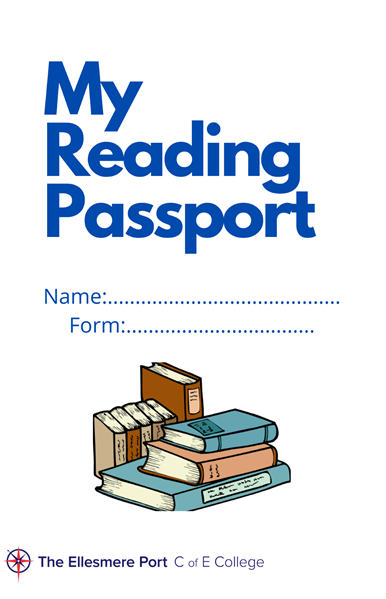 Recently all pupils have been given a Reading Passport. The purpose of this is to encourage pupils to read widely and regularly. The Passport features suggested reading for a range of genres.
Recently all pupils have been given a Reading Passport. The purpose of this is to encourage pupils to read widely and regularly. The Passport features suggested reading for a range of genres.
For each book read pupils get ‚Äėstamps‚Äô on their reading passports and will be rewarded with ClassCharts points and FFET Awards.
If you would like further information about what you can do to support your child’s reading development, please contact Miss Wright.




